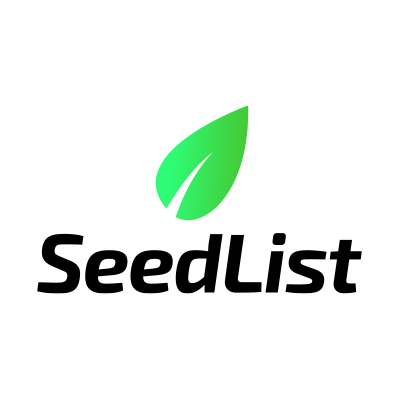A transformation is underway in the world of crypto fundraising. Rather than relying on traditional venture capital, many Web3 startups are now turning to institutional token launchpads that offer faster execution, broader community reach, and decentralized access to capital. Platforms such as CoinList, Republic, Bitget LaunchX, Echo by Cobie, SeedList, and Kaito Capital Launchpad are now driving the majority of high-profile token launches globally.
These launchpads are more than fundraising tools. They are complete infrastructure hubs that help startups build brand visibility, onboard global users, and achieve quicker time-to-market. The shift has been fueled by oversubscribed public rounds, better contributor mechanics, and growing pushback against the exclusivity of VC-only deals. With over 100 token launches forecasted for the second half of 2025, launchpads are no longer a backup option, they are becoming the primary route to the top 100 on CoinMarketCap.
How Multi-Platform Token Raises Became the New Normal
One of the strongest examples this year came from WalletConnect’s WCT token, which raised $10 million across CoinList, Bitget LaunchX, and Echo. The results demonstrate just how efficient and wide-reaching token launchpads have become:
Bitget LaunchX sold out its $4 million allocation in less than two hours, with more than $170 million in pledges from over 40,000 users
CoinList attracted over 18,000 investors across 100+ countries
Echo, operated by crypto figure Jordan Fish (Cobie), filled its $500,000 private round in only 11 seconds, leveraging automated tools and active communities
CoinList, which emerged from AngelList, continues to roll out token sales for projects like Obol, Bitlayer, and DoubleZero, using a karma-based system that rewards active participation. Previous launches from the platform include Solana, Filecoin, and Flow by Dapper Labs.
Republic, supported by Galaxy Digital, has now raised over $120 million through its launchpad model, which includes USDC dividend distributions to NOTE holders. Echo, meanwhile, launched its modular Sonar sale stack to allow compliant, self-hosted token sales by early-stage teams.
In July, Kaito Capital Launchpad, founded by a former Citadel executive, entered the space with a Base-chain-native architecture, AI-driven analytics, and a social reputation-based allocation engine. Its debut raise, Espresso, featured capped investments, vesting schedules, and revenue redistribution using the KAITO token.
The Contributor-Centric Approach: SeedList’s Unique Position
While many launchpads are expanding access, SeedList is taking a more focused approach, replacing VCs entirely and allocating early-stage access to contributors, not just capital providers. Based in Singapore, SeedList is designed to give KOLs, builders, and engaged community members the opportunities that once went only to insiders.
The platform uses an AI-powered merit allocation system that evaluates technical contributions, engagement quality, and KOL impact. Instead of relying on staking or lotteries, SeedList rewards meaningful, verifiable input, especially from outside the U.S., where access to token sales has historically been more limited.
“We’re standing on the foundation built by CoinList and others, but our model was developed for the next phase of crypto,” explained SeedList co-founder Rosa Pagani during a closed investor session. “Rather than letting capital dictate who gets in, we use merit. VCs are removed, and their allocation is redirected to contributors who help grow the ecosystem.”
SeedList also avoids regulatory complexity by not holding fiat or crypto on behalf of users. This non-custodial model removes barriers to participation and simplifies onboarding, especially for users in emerging markets.
Backing for SeedList comes from key figures in both crypto and traditional finance. Rosa Pagani also serves as CEO of WhiteBIT Australia, a regional branch of WhiteBIT Global, Europe’s largest crypto exchange with over 8 million users and a valuation of $18 billion. Another strategic backer is Brijesh Patel, former partner at Pronomos Capital, a VC focused on decentralized cities and supported by Marc Andreessen (a16z), Balaji Srinivasan (former Coinbase CTO), the Winklevoss twins (Gemini and Facebook), and Naval Ravikant (founder of AngelList, the parent company of CoinList).
Choosing the Right Launchpad Strategy
According to Solana ecosystem veteran CryptoSheldon:
“In an ideal world, crypto founders choose based on project needs. If you’re U.S.-based and want VC exposure, CoinList fits. If you’re building a decentralized protocol or layer one project outside the U.S. and want to reach half a million users through KOLs, SeedList is the better fit. Echo and Kaito offer strong middle-ground solutions.”
This flexibility marks a major evolution in token fundraising. Rather than relying solely on capital networks, projects now choose launchpads based on growth strategy, user reach, and alignment with their ecosystem.
A Look Ahead: Q3 and Q4 of 2025
By mid-2025, the line between launchpads, exchanges, and venture capital has blurred. Platforms like CoinList, Republic, Echo, Kaito, and SeedList are embedding liquidity, compliance, analytics, and marketing support directly into the launch stack.
Dozens of token sales are scheduled across these platforms in Q3 and Q4, including infrastructure-focused DePIN projects, AI-native networks, and L2 scaling protocols. Launchpads are not only distributing tokens, they are building ecosystems, onboarding users, and delivering price discovery in ways traditional VC models simply can’t match.
Meanwhile, a new class of platform founders is leading the charge. Jordan Fish (Cobie) launched Echo. Yu Hu, formerly of Citadel, founded Kaito. CryptoSheldon, known for his work in the Solana ecosystem, created SeedList to give contributors, not institutions, priority access.
The trend is clear. What started as an experiment is now the playbook. If things continue at this pace, 2025 may be remembered as the year token launchpads fully replaced VCs as the engine behind Web3 fundraising.




















